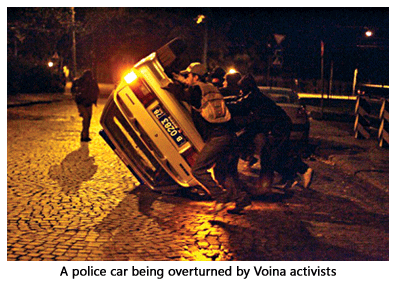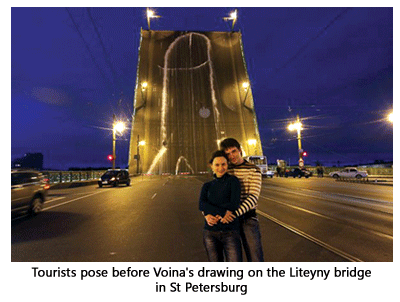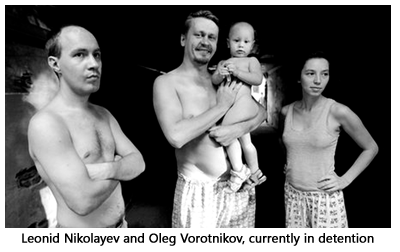- Prelude
- Editorial
- Subodh's 'return home'
- A Conversation with TV Santosh
- It's a War Out There
- Raqib Shaw
- Illusions in Red from a very British Indian Sculptor
- Stand Alone: Shibu Natesan
- Reading Atul Dodiya
- Bharti Kher: An Obsession for Bindis
- Bose Krishnamachari
- The Image - Spectacle and the Self
- From Self-depiction to Self-reference: Contemporary Indian Art
- GenNext: The Epitome of New Generation Art
- Kolkata's Contemporary Art A Look in the Mirror
- Innovation Coalesced with Continuing Chinese Qualities
- Kala Bhavana-Charukala Anushad Exchange Program
- Montblanc Fountain Pens
- Dutch Designs: The Queen Anne Style
- Bangalore Dance Beat
- Decade of change
- Distance Between Art & It's Connoisseur
- What Happened and What's Forthcoming
- 3rd India Art Summit
- New Paradigms of the Global Language of Art
- Black Brown & The Blue: Shuvaprasanna
- Art Events Kolkata
- Musings from Chennai
- Art Bengaluru
- Printmaker's Season
- Mumbai Art Sighting
- The Pause of Profound Stillness
- Previews
- In the News
- The Rebel Queen: An icon of her own times yet looked down upon
ART news & views
It's a War Out There
Volume: 3 Issue No: 14 Month: 3 Year: 2011
Hard Talk
by Shoma Bhattacharjee
Voina Group, a group of activist-artists from Russia, makes the Russian regime see red.
Their art is such that besides brush and paint, new media and ideas, they often need the veil of dark night as raw material. They are not in the business of selling. Jerky videos of their performances are available on YouTube for all to observe and absorb. Their latest work was overturning a few police cars at the city centre in St Petersburg on the pretext of locating a child's plastic ball. This piece of action was titled The Palace Revolution. It was a sneer directed at the ferric corruption of Russia's police force and by extension all such law enforcement agencies the world over.

On another occasion, they chose the pre-dawn hours of Che Guevara's birthday to speed-paint (in 23 seconds) a 213-feet-tall and 89-feet-wide phallus on a drawbridge facing the FSB headquarters. Displaying an exemplary sense of 'dark' humour, the phallus would slowly but surely rise every time the bridge was opened to let the ships pass, leaving no one in doubt about the creators' thoughts on Russia's spy body. They called it the Giant Galactic Space Dick. It was scrubbed off after a few hours. But not before buoyant couples hugged and clicked photos before the fast-vanishing monument. And not before a video of the action was posted on the Net.
At other times, they did not need the cover of night. Once, a Voina Group actionist with two blue buckets on his head clambered over a police vehicle after scything through high-speed traffic. It was a wordless spiel against the widespread use of blue emergency lights by officials who pronounce themselves above the law. A more tongue-in-cheek project involved walking away from a store with a trolley-load of goods without paying for them. The person pushing the trolley wore a policeman's uniform.
Interventionist and at times free-wheeling work of Russia's art band, Voina Collective, grabbed space in mainstream media last December, when two of its members, Oleg Vorotnikov and Leonid Nikolayev, were imprisoned. They were charged with 'hooliganism' and 'criminal mischief' for overturning the police cars and face up to five years' in prison, if convicted. They remain in jail and in questionable circumstances. Graffitist Banksy's offer of $133,000 as bail money was refused. The great Banksy though served the purpose of gently pushing this volatile commodity on to the world's lens.
Voina was founded in 2007 around a core group of philosophy students from Moscow State University. Alexei Plutser-Sarno, a part of Voina's concept team, in an exclusive interview to ART News and Views, classified their genre as actionism. It has also been described as guerilla, protest, anarchic, even hooliganart, among other things. It has been likened to the extreme sport of alpining. Political, and current affair-centric, Voina has barged into mainstream Russian art, evoking extreme reactions. Alexei is now undercover, possibly in Estonia, as he too is on arrest alert.
Voina literally translates as war. And there's no attempt on Voina's part to pussyfoot behind tangential understatements. The group has more than its share of critics who scoff at them for being too staged, direct and inexperienced, and a bunch of wannabes. Strangely, one of their sharpest critics is Russia's shock-jock of the nineties, one-time actionist Anatoly Osmolovsky. He trashes Voina for rehashing actionist strategies that he had pioneered. In 1998, Osmolovsky and his helpers had lain down on the ground and formed the word khui (Russian slang for phallus) very near the Red Square. Ever since, he has turned his rather imposing back on revolution, been feted by the establishment he had rebelled against and showed in the bourgeois and super-prestigious Moscow gallery, Stella Art Foundation. The ex-radical has declared: "Technologies of scandal and mass media provocations that were practiced at the times of actionism have long exhausted their potential.”
Alexei was possibly alluding to Anatoly Osmolovsky, when he told The New York Times, “Who are the other left radical artists? These are people who constantly travel to the West, get grants, take part in conferences, read reports about revolution and Marxism and the difficult conditions of the working class in Russia.”
According to Moscow art critic Philip Riff: “The majority of Russian art professionals shies away from any politics beyond harmless spectacle, opting instead for a defense of 'free art' and 'autonomy,' which, under present conditions, can and should be understood as autonomy in a heavily guarded luxury ghetto (if the artist is lucky) or autonomy below the horizon of visibility or on the margins of society.”
Riff fears that the arrest of the two Voina members may have struck at the heart of the collective, which had perfected the art of teasing, yet skirting the authorities.
Predictably, Alexei Plutser-Sarno does not agree. The latest twist in Voina's story is a carrot sent out by the Russian government. The Russian ministry of culture nominated the two jailed Voina artists, Oleg and Leonid, for an award for 'Innovative Art in 2010'. Alexei is not about to bite. “The cynical authorities offer the award to the very artists whom they put in jail,” he said.
'By means of our art, we mock their depravity'
 Shoma Bhattacharjee in an e-conversation with Alexei Plutser-Sarno
Shoma Bhattacharjee in an e-conversation with Alexei Plutser-Sarno
SB: How many members does Voina have?
A: The group's staff keeps changeable. However, there are four leaders, who are in charge of the concepts Oleg Vorotnikov (Vor), Kozlyenok (Natalia Sokol), Leonid Nikolayev (Crazy Leo) and I.
SB: What is it that motivates you more? Art or activism?
A: We call it art activism, i.e. political protest in the language of art actionism. As a form it is art, but themes and messages are of socio-political character.
SB: You say you admire Buddhism. Yet you name your artists' collective Voina, which means war. The latent violence of your art contradicts the essence of the Buddha, who preached about the middle path. How do you reconcile this paradox?
A: We didn't say that we are Buddhists. What we meant is that we respect and value Indian culture, the most ancient in the world. And, of course, we think that Buddhism is a unique cultural phenomenon. Its ideas spread and percolated through all the cultures in the world. In the field of art we are dealing with radical protest. There is no violence in our art, but there is a depiction of someone else's violence in it. In a real life we are more victims of violence, than vice versa. Two Voina artists are suffering in a terrible Russian prison for more than three months already. Other Voina activists are on their wanted list.
SB: It has been suggested that the predictably blunt reaction of the state in the latest instance, the arrest of two of your members is also part of Voina's artwork. The arrest becomes an aesthetic device when the establishment reacts to your action, so your action and theirs make the artwork a whole…
A: In our actions we depict the portrait of authorities, show how cruel and inhuman they are. By means of art we mock their stupidity and depravity. The fact that in response to our actions, the authorities are trying to destroy us proves that this portrait turned out to be pretty correct. So the unfair authorities' reaction has become a part of our action, a continuation of it.
SB: Do you think that art and aesthetics somewhere tends to get lost in the grossness of anarchism? What if someone saw little or no aesthetic appeal in (the not so novel concept of) public sex as a means of protest 'art'?
A: The orgy in the State Biological museum was staged on a 'silence day' shortly before the announcement of Medvedev's election. Voina artists had sex under the banner, Fuck for the Heir Medvedev’s little Bear! Voina mocked the farcical and pornographic elections in the country, as Medvedev just inherited the Putin's "presidential throne". It's not right to accuse anarchism of grossness. Authorities are gross. When people tell a firm “no” and fight back against the right-wing authorities, who torture them and eliminate their rights, it is silly to call those people violent.
SB: There is another charge against Voina. That it hides under the garb of art to provoke to the furthest extreme, to be self-indulgent, rather than carrying the urge to experiment with art to the brink. Please respond to that charge.
A: Our actions are fearless and romantic. There is zero-extremism in them. We oppose the evil.

SB: It has also been argued that the nature of your protest against a totalitarian and repressive regime would insure you against criticism as it would seem like the critic was siding with the regime…
A: Voina has already been demonized and traduced by all sorts of critics. Only few experts and art connoisseurs take our part. It's because the language we use is innovative; and unprepared audience can't decide whether it's art or not.
SB: According to latest reports, Banksy's help has been refused by the authorities in Moscow. How do you view the future?
A: The corrupted judges didn't accept the bail offer of $133,000 from Banksy and left the Voina artists in custody. Though in Russia this bail sum is more than the sum offered for grave crimes, like murder. The case of Voina is clearly political. Obviously, Oleg Vorotnikov and Leonid Nikolayev are political prisoners. The authorities gave an order to keep them in prison and the judges execute this order. So there is nothing else left for us to do but draw as much of international observers' attention to this outrageous case as we can.
SB: There is widespread repression of art and any form of freedom. Is it true that shows are banned from traveling abroad? What are your levels of communication with the outside world? With activist-artists in the West or elsewhere?
A: The censorship in Russia is pretty harsh. We communicate virtually only. We don't meet in person. Voina artists Oleg Vorotnikov and Leonid Nikolayev are detained in prison. It's forbidden to have money or cell phones, to use computer or internet there. Natalia Sokol and her little son Kasper don't have IDs to leave the country passports were illegally confiscated by the Center for Extremism Prevention during the arrest. At the present moment it's me only, who can travel somewhere. But I am also wanted by the Russian police. I am accused of the article 210, which is 'organizing and leading a criminal community’ namely, the Voina art group. This accusation implies a term of imprisonment of 12-20 years.
SB: Russia has not blocked your website or your email. Do you think they have not done so in order to police your correspondence? The secret police are using the social networks as well as other cyber devices to keep a tab on their suspects and turn the tables on them, you must be aware of that…
A: Gmail accounts are difficult to block, as this service is not provided by a Russian company. My LJ blog is not blocked yet as it's the main info source for dirty cops, who attach my interviews, articles and fiction to the Voina criminal case. I have a copy of the criminal case, which proves that those are the only clues and evidences police have. Apart from our media art, they don't have anything.
SB: Would you feel your art would serve its purpose if your mission is achieved? What if time erodes the mission, which unfortunately, is more likely to happen?
A: Art creates new languages and annihilates obscurantism by exposing its symbolic senselessness and harmfulness. The mission is never to be achieved. Innovative protest art will be waging war against virus-like ideologies forever.
SB: Finally, a word about those who influenced you. Moscow Conceptualism comes to mind.
A: Curiously enough, neither Berlin Dadaists, nor Russian futurists, nor Viennese actionists influenced me. Those who influenced me most are Rembrandt, uncompromising and honest; Jacques Lacan, who changed my perception of the world; and an outstanding art actionist Oleg Vorotnikov.